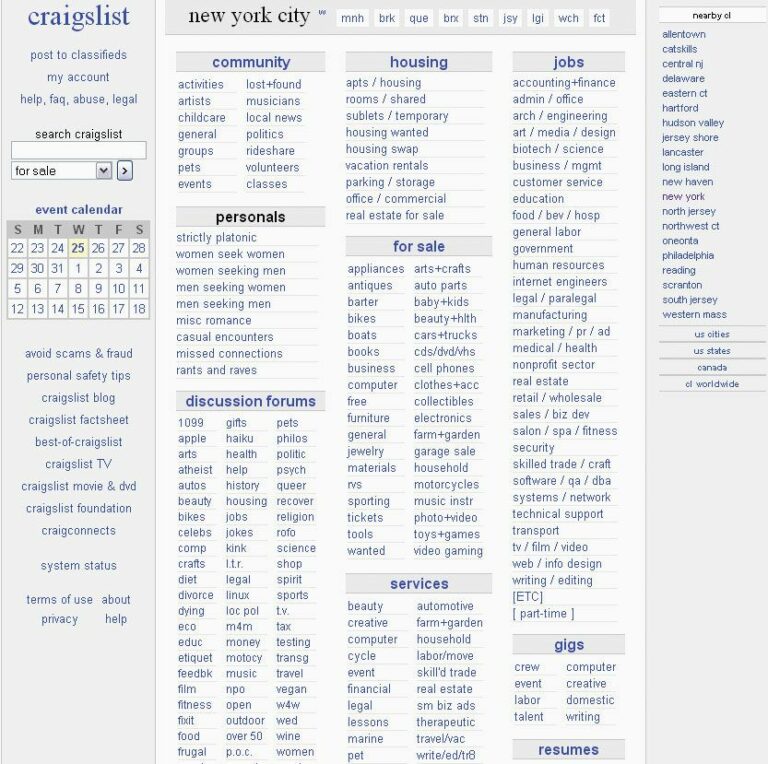Used Semi Trucks For Sale By Owner: A Comprehensive Guide to Smart Acquisition
Used Semi Trucks For Sale By Owner: A Comprehensive Guide to Smart Acquisition cars.truckstrend.com
The open road calls to many, promising independence, adventure, and the potential for a thriving business. For aspiring owner-operators and expanding small fleets, acquiring a reliable semi-truck is the foundational step. While dealerships offer convenience and various packages, an increasingly popular and often more economical route is purchasing a Used Semi Truck For Sale By Owner. This approach, bypassing traditional dealerships, can unlock significant cost savings and offer a unique level of transparency, but it also demands meticulous due diligence and a clear understanding of the process.
This comprehensive guide will navigate the intricacies of buying a used semi-truck directly from its owner, equipping you with the knowledge, strategies, and cautionary advice needed to make an informed and successful purchase.
Used Semi Trucks For Sale By Owner: A Comprehensive Guide to Smart Acquisition
The Allure of Buying Direct: Why Choose "For Sale By Owner"?
Opting for a semi-truck sold by its owner presents a compelling set of advantages, primarily centered around cost and direct engagement.
Key Benefits:
- Cost Savings: The most significant draw is often the price. Owners typically don’t have the overhead costs of dealerships (showrooms, sales staff, advertising, reconditioning bays), allowing them to list their trucks at a lower price point. This means you avoid the dealer markup, potentially saving thousands of dollars.
- Direct Negotiation: Without a corporate price structure, there’s more flexibility for negotiation. You’re dealing directly with the individual who owns the asset, making it easier to discuss price, payment terms, and even minor repairs or included accessories.
- Unparalleled Transparency & History: This is perhaps the greatest non-financial benefit. The owner is often the truck’s primary operator and maintainer. They can provide first-hand accounts of the truck’s operational history, common routes, maintenance habits, and any quirks or past issues. This direct line of communication allows for a deeper understanding of the truck’s life than a dealership might offer. You can ask specific questions about oil change intervals, major component replacements, and even the truck’s performance in various conditions.
- No Sales Pressure: Private sales typically lack the high-pressure sales tactics sometimes associated with dealerships. You can take your time, inspect the truck thoroughly, and make a decision without feeling rushed.
- Potential for Well-Maintained Vehicles: Many owner-operators are meticulous about their equipment. Their livelihood depends on their truck’s reliability, so they often invest heavily in preventative maintenance and timely repairs. Buying from such an owner can mean acquiring a truck that has been genuinely cared for.

Potential Challenges and Risks:
While appealing, buying privately isn’t without its pitfalls. Awareness of these challenges is crucial for mitigating risks.
- "As-Is" Sales and Lack of Guarantees: The vast majority of private sales are "as-is," meaning once you buy it, any issues that arise are your responsibility. There are no implied warranties or guarantees from the seller, unlike some dealership offerings.
- Financing Hurdles: Securing financing for a private semi-truck sale can be more challenging. Traditional banks and credit unions may be hesitant to finance older or higher-mileage commercial vehicles in a private transaction, and specialized truck lenders might require higher down payments or charge higher interest rates.
- No Reconditioning: Dealerships often recondition used trucks, addressing cosmetic and minor mechanical issues before sale. A private seller typically sells the truck in its current condition, meaning you might need to budget for immediate maintenance, repairs, or detailing.
- Risk of Misrepresentation or Scams: While most private sellers are honest, there’s a higher risk of encountering individuals who may misrepresent the truck’s condition, hide major issues, or even attempt outright fraud (e.g., selling a truck with a lien).
- Limited Inventory: You won’t find the wide selection of makes, models, and configurations available at a large dealership. Finding the exact truck you need might take more time and patience.
Navigating the Search: Where to Find Owner-Sold Semi Trucks
Once you’ve weighed the pros and cons, the next step is finding potential trucks.
- Online Marketplaces: These are your primary hunting grounds.
- Dedicated Commercial Vehicle Sites: TruckPaper.com, CommercialTruckTrader.com, MyLittleSalesman.com. Many owners list here.
- General Classifieds: Craigslist, Facebook Marketplace, and specialized Facebook Groups for truckers (e.g., "Trucks for Sale," "Owner-Operator Classifieds"). Be cautious and verify listings.
- Industry Forums and Associations: Online forums for owner-operators (e.g., The Truckers Report Forum, TruckingTruth.com) often have "For Sale" sections. Industry associations may also have classifieds or networking opportunities.
- Word-of-Mouth: Network with other truckers, mechanics, and industry professionals. Sometimes the best deals are found through personal connections.
- Truck Stops and Rest Areas: Keep an eye out for "For Sale" signs on trucks parked at these locations.
- Local Ads: Check local newspapers or bulletin boards in trucking-heavy areas.
The Due Diligence Checklist: What to Scrutinize Before You Buy
This is the most critical phase of a private purchase. Your thoroughness here will directly impact the success and safety of your investment.
1. Initial Contact and Questioning:
- Ask for Maintenance Records: This is non-negotiable. A responsible owner will have records.
- Inquire about Major Components: When were the engine, transmission, and differential rebuilt or replaced? What brand?
- Understand Its History: What kind of hauling did it do? Long haul, local, heavy haul? Why are they selling?
- Check for Liens: Ask if there’s an outstanding loan on the truck. Get the lender’s information if there is.
2. Vehicle History Report (VHR):
- Obtain a VHR using the VIN. Services like Carfax (for commercial vehicles), NICB, and NMVTIS can reveal critical information:
- Accident History: Was it ever in a major accident?
- Title Brands: Salvage, rebuilt, flood damage, odometer rollback. Avoid branded titles unless you’re an expert rebuilder.
- Lien Information: Confirm if any liens are reported.
- Odometer Discrepancies: Ensure mileage reported matches the truck.
3. Professional Pre-Purchase Inspection (PPI):
- This is paramount. Do not skip this step. Hire an independent, certified heavy-duty truck mechanic or service center to perform a comprehensive PPI. They will put the truck on a lift and inspect:
- Engine: Leaks, oil analysis, compression test (if possible), abnormal noises, exhaust smoke.
- Transmission & Drivetrain: Shifting quality, fluid condition, U-joints, differential.
- Brakes: Air system integrity, brake shoe/pad thickness, drums/rotors.
- Suspension: Airbags, springs, shocks, kingpins, bushings.
- Frame: Cracks, previous repairs, rust.
- Tires: Tread depth, uneven wear (indicating alignment issues).
- Electrical System: Lights, gauges, ECM diagnostics (fault codes), batteries.
- HVAC, APU, and Auxiliary Systems: Ensure everything is functional.
- Fifth Wheel: Wear and proper operation.
- The PPI report will give you leverage in negotiation and highlight immediate repair needs.
4. Test Drive:
- Drive the truck yourself, ideally with a load if possible (or at least simulated load on a highway).
- Listen for unusual noises from the engine, transmission, and differential.
- Test the brakes: do they pull? Is the air pressure stable?
- Check all gauges and dashboard lights.
- Feel the steering for play or pulling.
- Ensure the transmission shifts smoothly through all gears, both up and down.
Understanding the Numbers: Pricing, Negotiation, and Financing
Pricing Factors:
The price of a used semi-truck varies wildly based on numerous factors:
- Make and Model: Certain brands (e.g., Peterbilt, Kenworth) often command higher prices due to reputation for reliability or resale value.
- Year of Manufacture: Newer trucks are more expensive.
- Mileage and Engine Hours: Lower mileage and fewer engine hours generally mean higher value.
- Engine Type and Horsepower: Popular and reliable engines (e.g., Cummins, Detroit, PACCAR) and higher horsepower can increase value.
- Transmission Type: Manuals might be cheaper, automatics often preferred for ease of use.
- Condition: Mechanical and cosmetic condition are huge determinants. A well-maintained truck with good records will fetch more.
- Features: APU (Auxiliary Power Unit), wet kit, specific sleeper configurations, and customizations can add value.
- Market Demand: Regional and national market conditions influence prices.
Researching Fair Value:
- Compare Similar Listings: Browse online marketplaces for trucks of the same make, model, year, mileage, and features.
- Consult Industry Guides: Resources like the NADAguides for Commercial Trucks can provide estimated values, though these are often general and require adjustment for specific truck conditions.
- Factor in PPI Findings: The cost of identified repairs should be deducted from your offer.
Negotiation Strategies:
- Be Prepared: Know the truck’s value, common issues for that model, and your maximum budget.
- Use PPI Findings as Leverage: Don’t be shy about pointing out deficiencies found during the inspection.
- Be Respectful but Firm: Maintain a polite demeanor but stick to your researched offer.
- Don’t Rush: If the deal doesn’t feel right, be prepared to walk away. There will always be another truck.
- Consider "As-Is" vs. Repair Credit: Most private sales are "as-is." If the seller offers to fix something, get it in writing. More commonly, you’ll negotiate a lower price based on anticipated repair costs.
Financing Options for Private Sales:
- Cash: The simplest and often preferred method for private sellers. It gives you significant negotiation power.
- Bank Loans/Credit Unions: Your local bank or credit union might offer commercial vehicle loans, but they may have stricter requirements for older trucks or private party sales.
- Specialized Truck Lenders: Companies that exclusively finance commercial vehicles are more accustomed to private sales. They understand the industry, but their interest rates might be higher than traditional banks.
- SBA Loans: Small Business Administration (SBA) loans can be an option for qualifying small businesses, often with more favorable terms.
- Seller Financing: Rare, but possible. If the seller is motivated and you have a strong relationship, they might agree to a payment plan. This typically requires a substantial down payment.
The Legalities: Completing the Transaction Safely
Proper legal documentation is vital to protect both buyer and seller.
- Bill of Sale: This is your core legal document. It should include:
- Date of sale.
- Full legal names and addresses of buyer and seller.
- Complete vehicle description (Make, Model, Year, VIN).
- Purchase price.
- "As-Is" clause (crucial for seller protection).
- Signatures of both buyer and seller. Notarization is highly recommended.
- Title Transfer: The truck’s title must be properly signed over from the seller to the buyer.
- Ensure the seller’s name on the title matches their ID.
- Verify the VIN on the title matches the truck’s VIN plate.
- Check for any outstanding liens listed on the title. If there are, the seller must provide a Lien Release document from their lender, proving the loan is paid off. You should never take possession of a truck with an active lien unless you are directly paying off that lien.
- Take the signed title, bill of sale, and lien release (if applicable) to your local Department of Motor Vehicles (DMV) or equivalent to transfer ownership and register the truck in your name.
- Escrow Service: For high-value transactions, consider using a third-party escrow service. They hold the funds until all conditions (inspection, title transfer, etc.) are met, providing security for both parties.
- Temporary Tags/Permits: Before driving the truck, ensure you have temporary tags or a trip permit from your state’s DMV if permanent registration isn’t immediate.
- Commercial Truck Insurance: Obtain appropriate commercial truck insurance before driving the truck off the seller’s property. It’s illegal and extremely risky to operate without it.
Representative Price Ranges for Used Semi Trucks (For Sale By Owner)
Please note: These are highly generalized ranges. Actual prices depend heavily on specific features, condition, maintenance history, regional market, and negotiation. This table serves as a directional guide.
| Age Category | Mileage Range (approx.) | General Condition Description | Price Range (USD) | Key Influencing Factors |
|---|---|---|---|---|
| Newer | 150,000 – 400,000 miles | Excellent mechanical, very good cosmetic, often still under some component warranty. | $70,000 – $150,000+ | Engine brand/model, horsepower, transmission type, APU, sleeper size, included tech. |
| (1-3 years old) | ||||
| Mid-Age | 400,000 – 700,000 miles | Good mechanical, fair to good cosmetic, well-maintained with service records. | $40,000 – $75,000 | Engine/transmission rebuild history, tire condition, major component replacements. |
| (4-7 years old) | ||||
| Older | 700,000 – 1,000,000 miles | Fair mechanical, some cosmetic wear, may have original major components or one rebuild. | $25,000 – $50,000 | Maintenance consistency, frame integrity, rust, engine/transmission health. |
| (8-12 years old) | ||||
| High Mileage/Older | 1,000,000+ miles | Variable condition, often requires immediate work, suitable for specific applications or projects. | $10,000 – $30,000 | Last major overhaul, specific known issues, potential for parts truck. |
| (>12 years old) |
Frequently Asked Questions (FAQ)
Q1: Is it always cheaper to buy a used semi-truck from an owner than a dealership?
A1: Generally, yes. Owners avoid dealership overheads and markups, allowing for lower asking prices and more negotiation room. However, dealership trucks might come with reconditioning, limited warranties, and easier financing, which can offset some of the initial price difference.
Q2: What is the biggest risk when buying a semi-truck from an owner?
A2: The primary risk is buying a truck "as-is" without any warranty or guarantee from the seller. This means you bear all responsibility for any hidden mechanical issues or problems that arise after the sale. This risk is best mitigated by a thorough pre-purchase inspection.
Q3: Can I get financing for a private semi-truck sale?
A3: Yes, but it can be more challenging than financing through a dealership. You might need to secure a loan from a traditional bank, credit union, or specialized commercial vehicle lender. Be prepared for potentially higher interest rates or stricter down payment requirements, especially for older trucks.
Q4: How important is a pre-purchase inspection (PPI) for an owner-sold truck?
A4: Extremely important. A PPI by an independent, certified heavy-duty mechanic is non-negotiable. It helps uncover hidden issues, verifies the seller’s claims, and provides leverage for price negotiation. It’s the best defense against buying a "lemon."
Q5: What documents do I need to complete a private semi-truck sale safely?
A5: You will absolutely need a comprehensive Bill of Sale signed by both parties, and the truck’s properly signed-over Title. If there was a lien on the truck, the seller must also provide a Lien Release document from their lender.
Q6: What if the seller still owes money on the truck?
A6: Do NOT complete the sale without ensuring the lien is cleared. The safest way is to involve the seller’s lender directly, or use an escrow service. The seller’s lender should provide a lien release document once the loan is paid off.
Q7: Should I consider an older, high-mileage truck from an owner?
A7: Yes, but with extreme caution. These trucks are significantly cheaper and can be good for specific niche operations or as project trucks. However, they are more likely to require immediate and ongoing repairs. A meticulous PPI and a clear understanding of the truck’s maintenance history are even more critical in these cases.
Conclusion
Purchasing a used semi-truck directly from its owner can be a highly rewarding and cost-effective strategy for entering or expanding your trucking operations. The potential for significant savings, direct negotiation, and unparalleled transparency into the truck’s history makes it an attractive option.
However, this path demands a proactive and informed approach. Thorough research, meticulous due diligence, a non-negotiable professional pre-purchase inspection, and careful attention to legal documentation are not just recommendations – they are necessities. By diligently following these steps, you can confidently navigate the private sale market and secure a reliable asset that will serve your business well on the open road. Your journey into truck ownership, handled wisely, can begin with a smart, owner-to-owner acquisition.





